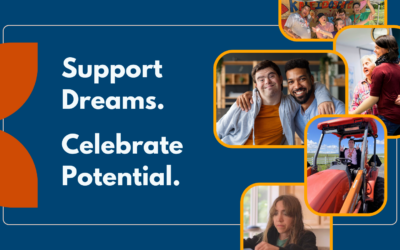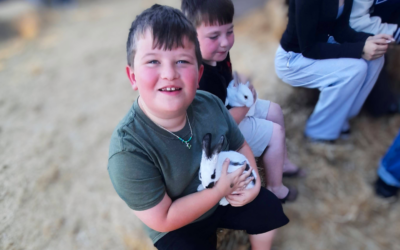By Ben Pfingston

In recent years, autism and other developmental disabilities have come into the limelight with increased awareness and broader public recognition. Discussions about autism and other disabilities are prominent in the news and on social media platforms, such as TikTok. While people are starting to recognize and understand autism more, there is still work to be done regarding the public’s conceptualization of autism – especially considering the large amount of misinformation online. As an autistic researcher and self-advocate, I think it’s important that people are able to understand autistic people and meet us where we are at. I’m only one person and it’s critical to realize no two people’s experiences are the same – whether they’re neurotypical or neurodiverse – but, for Disability Pride Month, I’d like to discuss six things many autistic people wish neurotypical people knew about autism, presented in no particular order:
- Many sensations can be painful. When we react strongly to sensory stimuli, whether it be loud noises, certain textures or the taste of some foods, we aren’t exaggerating. Certain stimuli can be painful or otherwise very aversive. Neurotypical people may experience this with certain things, but it’s more common and frequent in individuals with intellectual or developmental disabilities (I/DD).
- Communication goes both ways. Common scholarship often frames autistic social differences as deficits on the autistic person’s part. However, many autistic people believe that communication breakdowns are bi-directional and that everyone involved in an interaction is responsible for making sure it goes smoothly. This concept is referred to as the double empathy problem and many autistic people report this idea ringing true in their own lives.
- We aren’t trying to be rude. Whenever we do things that are unusual or violate some form of social norm, we usually aren’t trying to be impolite. If we don’t look you in the eye, speak a bit too earnestly or don’t understand that we’re standing too close, please do not interpret our actions as arising from malice unless this is obviously the case.
- Most of us want friends and relationships, just like everyone else. While some people with I/DD are less interested in interpersonal relationships than neurotypical people tend to be, this isn’t true for a large portion of us. Even if we act aloof or awkward in social situations, many of us have just as strong a desire for friends, love and community as anyone else.
- Please don’t judge our special interests. Many autistic people have special interests – specific subjects that we are intensely focused on and passionate about. Stereotypically, media portrays these interests as things like math or trains. However, autistic people can have anything be their special interests and, sometimes, these things may be considered unusual or “not age appropriate” (e.g., a 20-year-old man with a special interest in My Little Pony). While someone’s special interest may be a bit strange, unless it is actively dangerous or harmful, please don’t judge us or try to change it. Our special interests make us happy. If it’s not hurting anyone, then there shouldn’t be a problem!
- Autism doesn’t have to be a bad thing! Many of us in the autistic community do not see autism or disability as an inherently negative thing. Our autism and the way it affects our life is a part of who we are and, while this isn’t universal, many of us have pride in our autistic identity. Instead of trying to change us to meet neurotypical standards, try to find ways to accommodate our differences and make us feel included in a world not meant for us.



